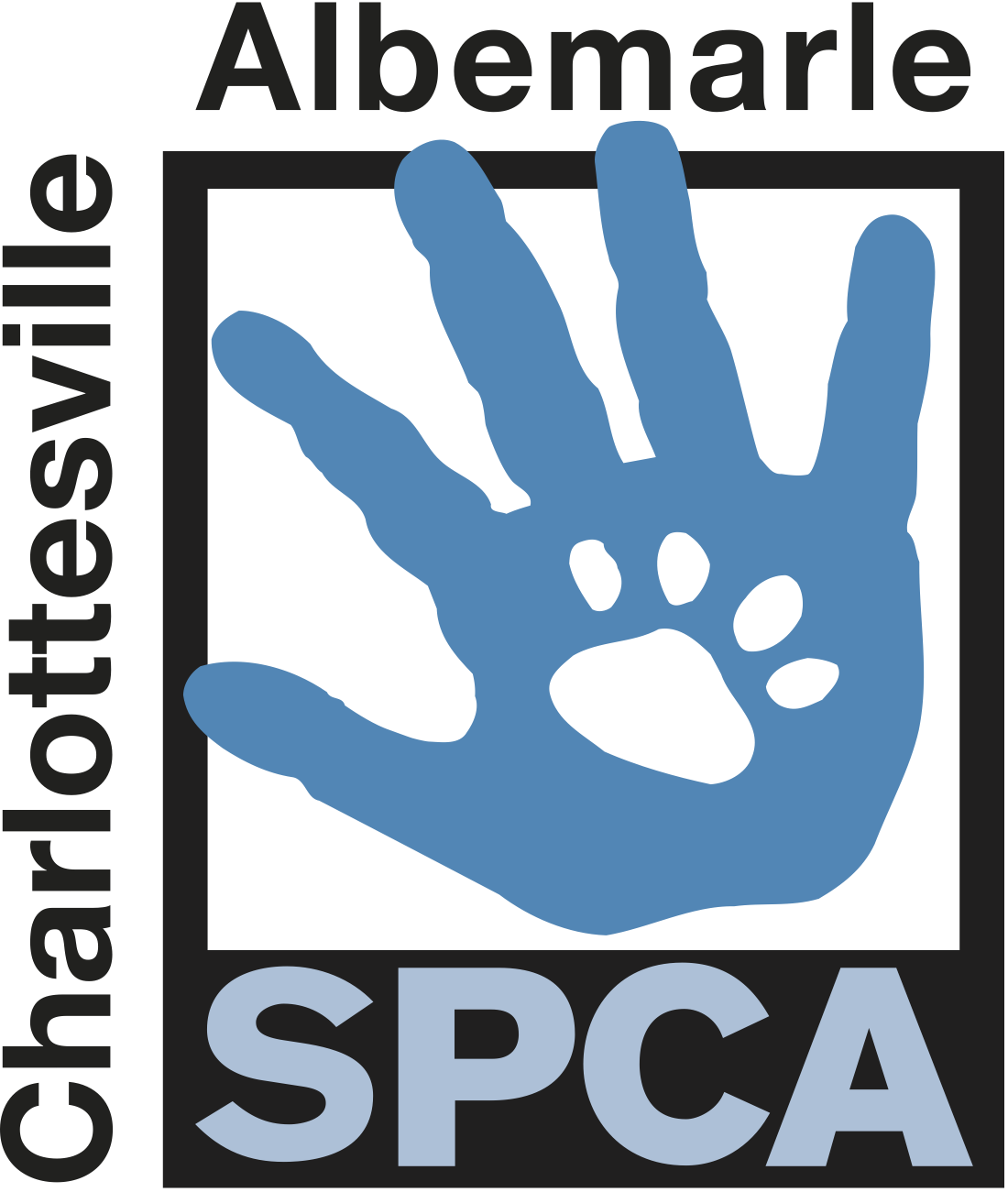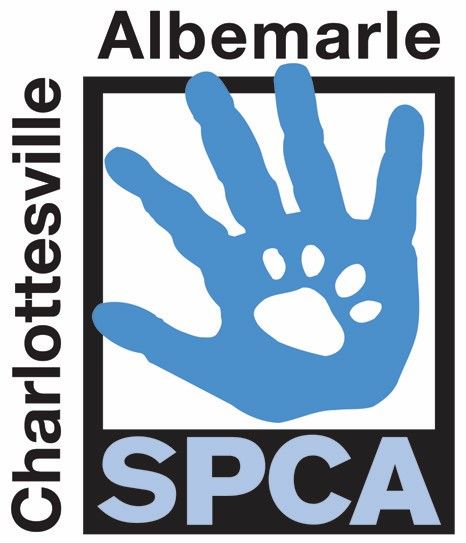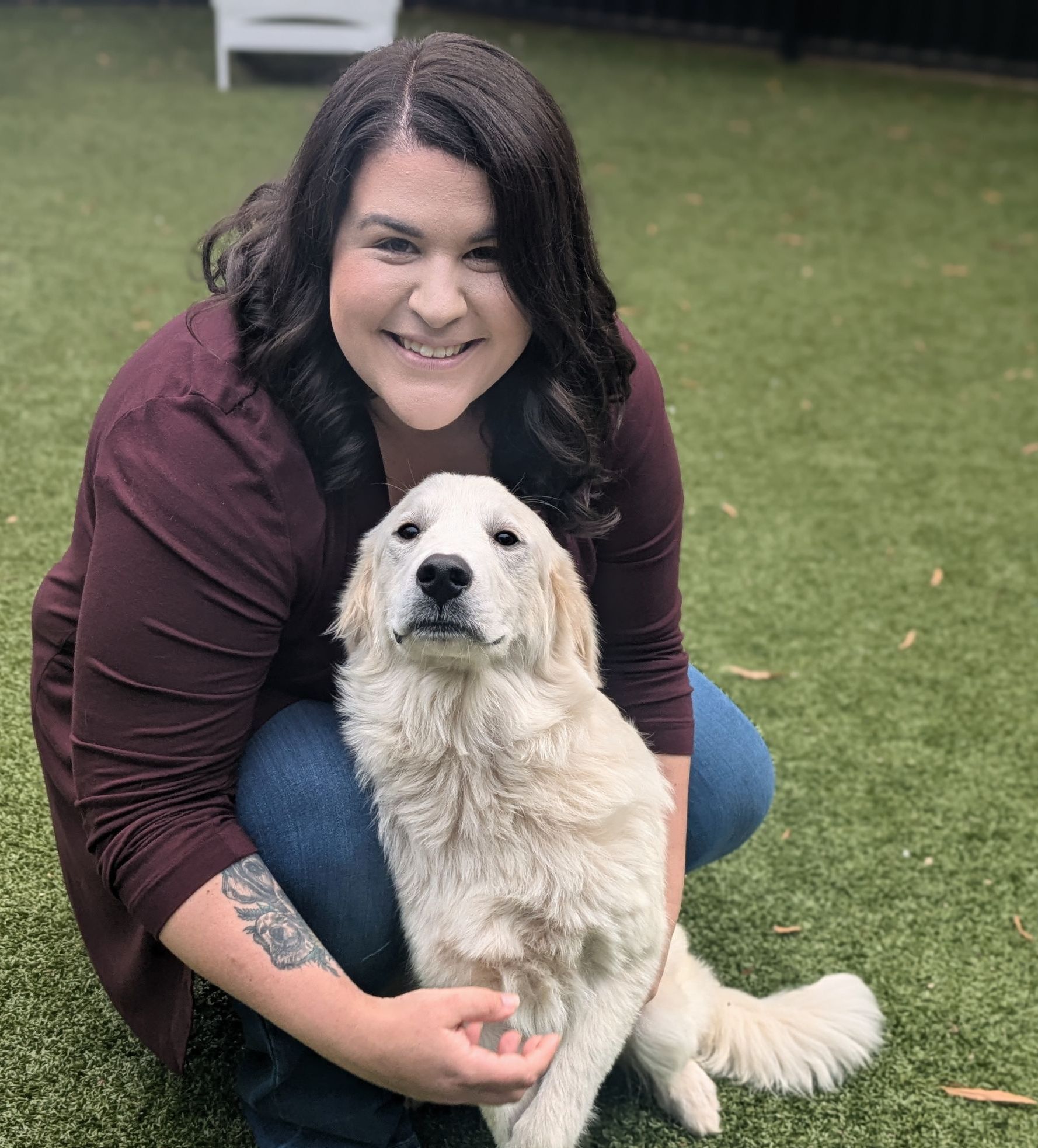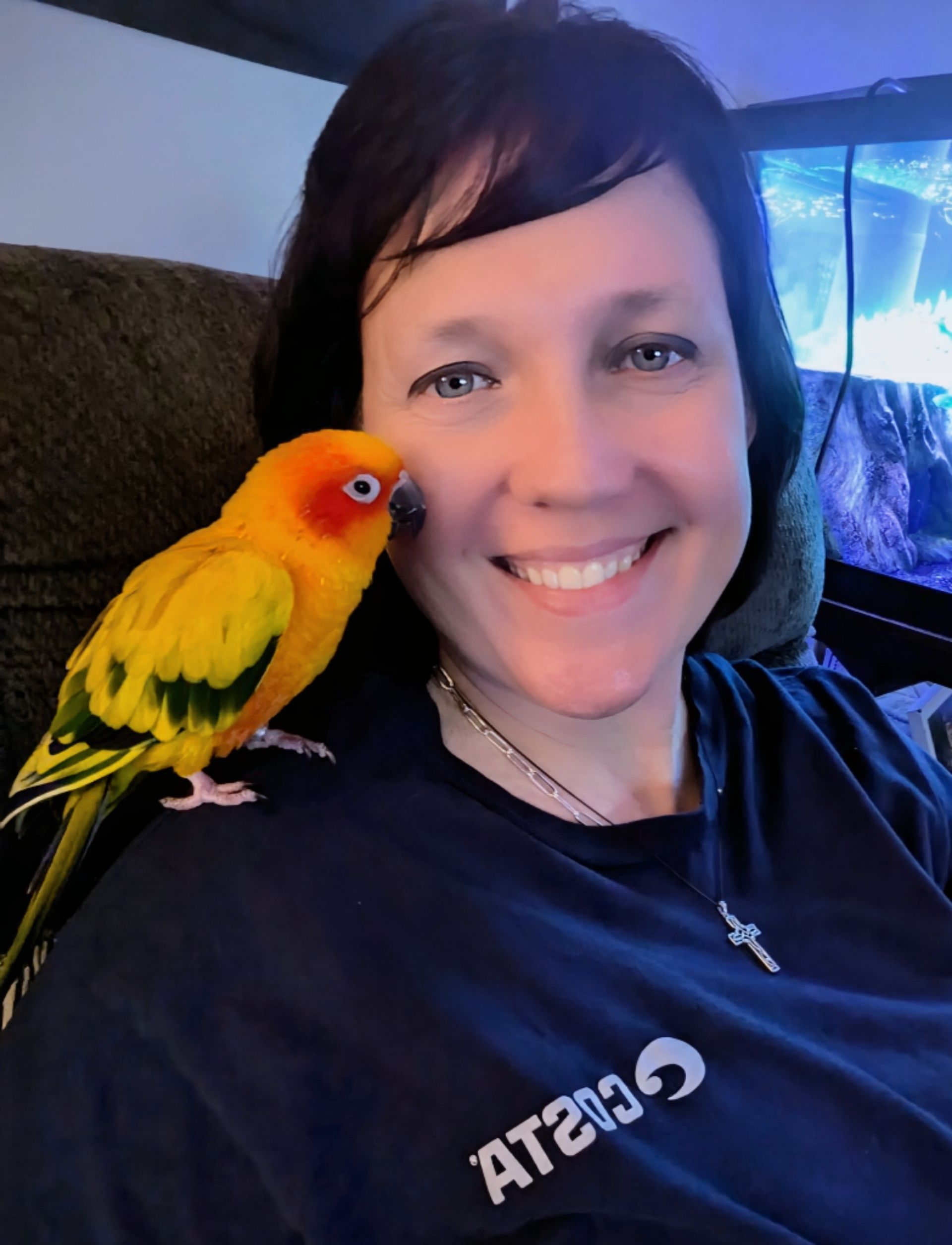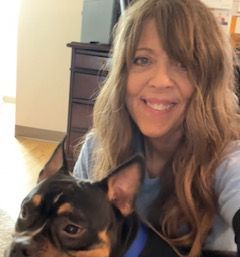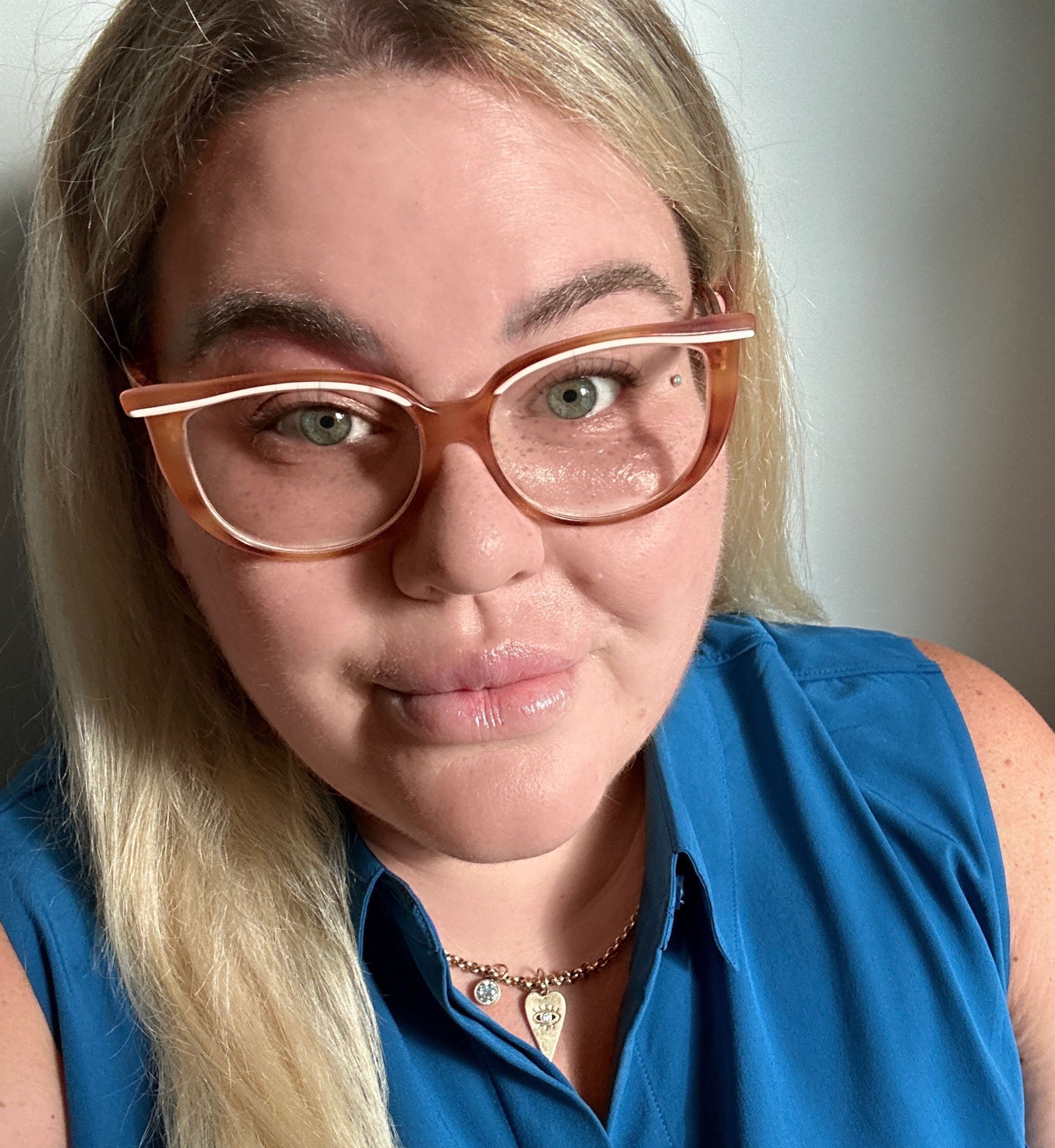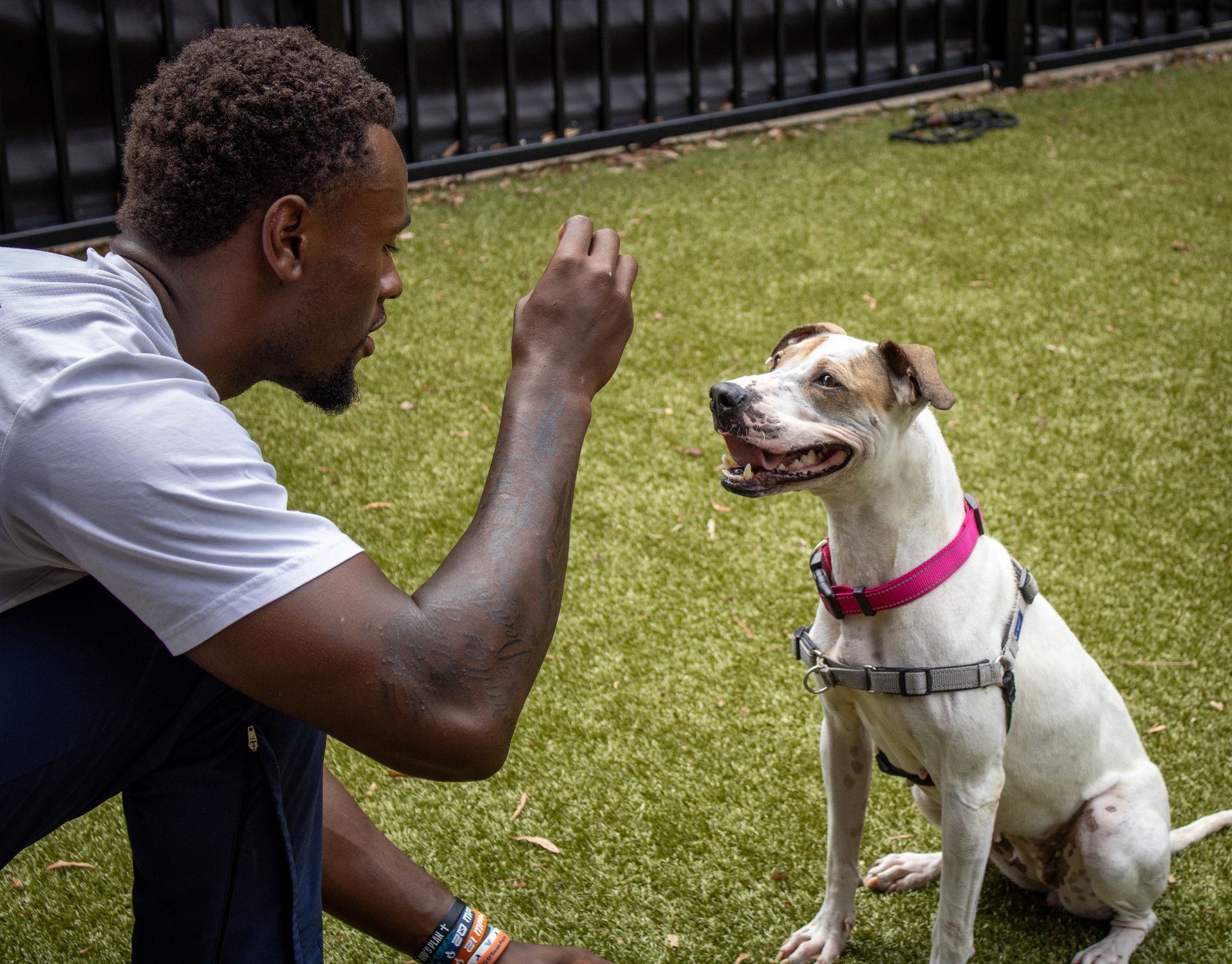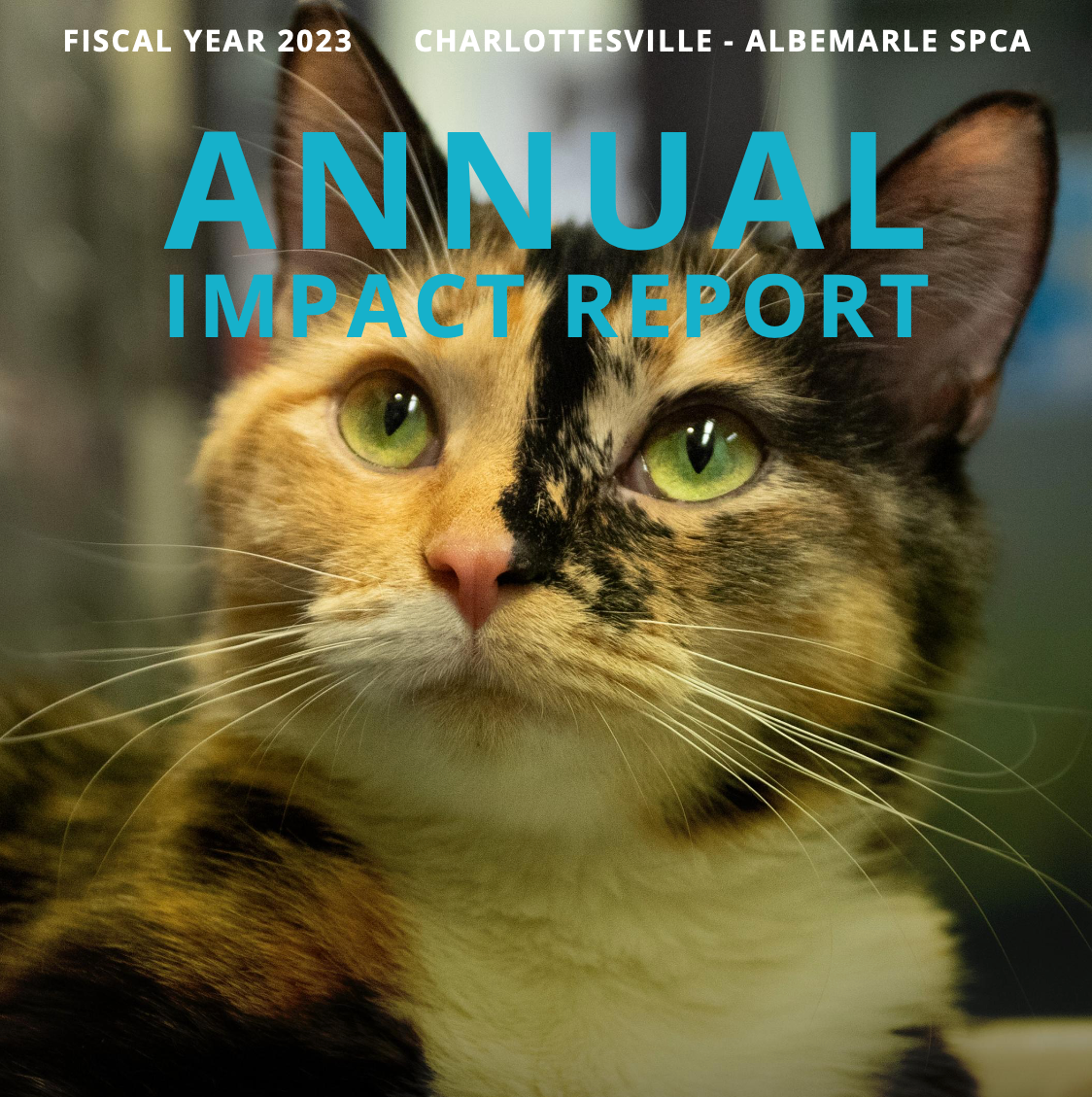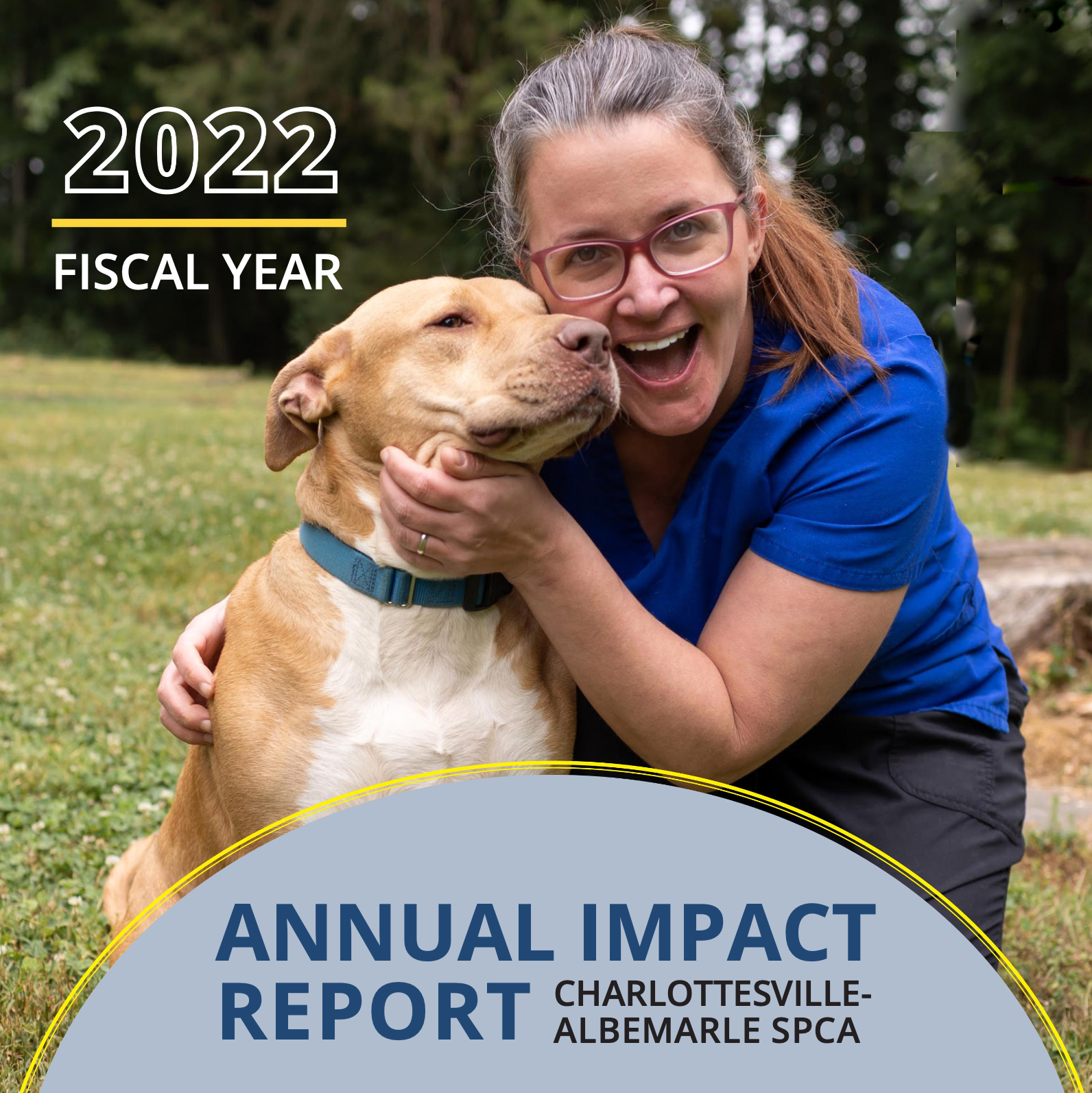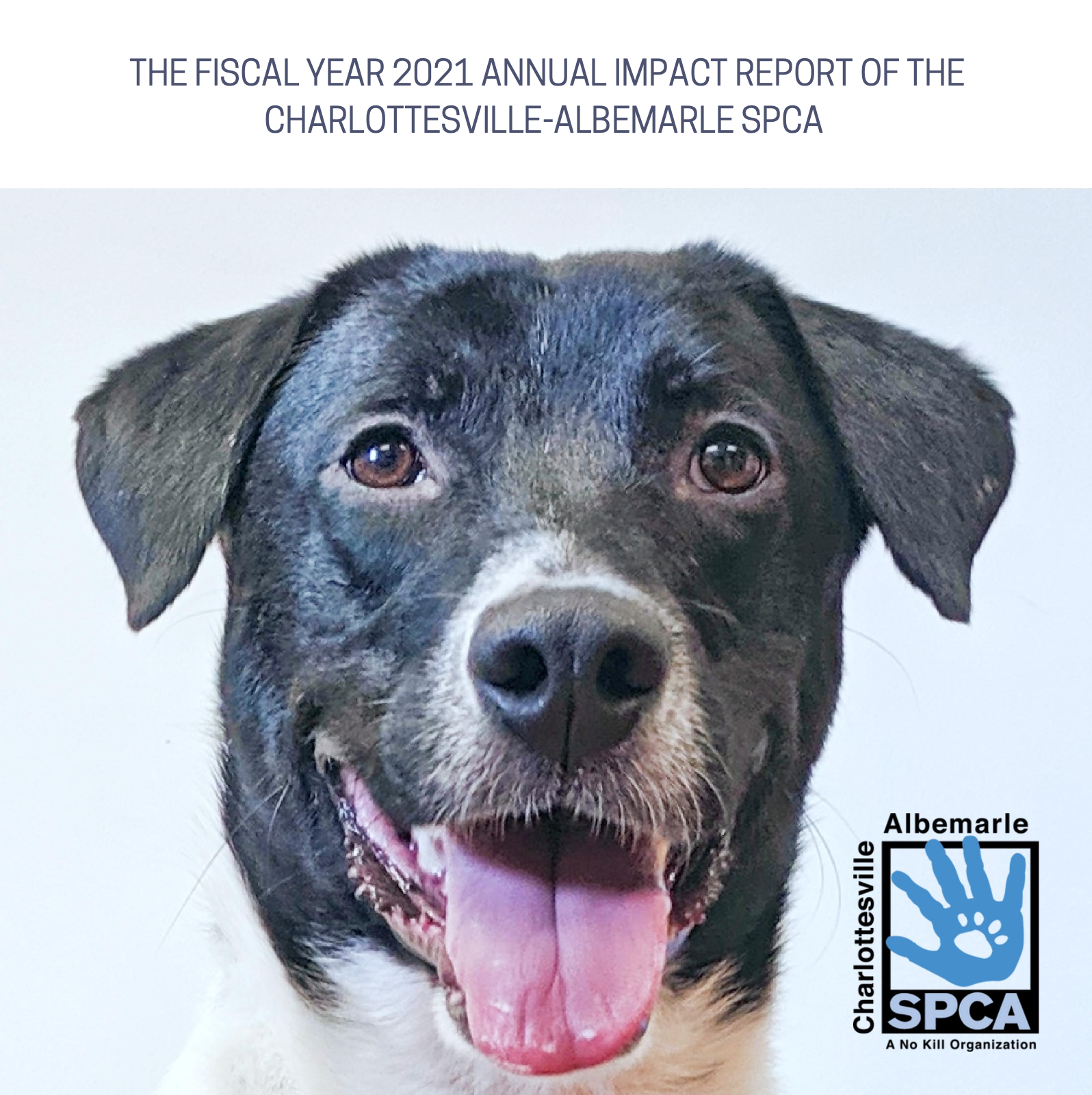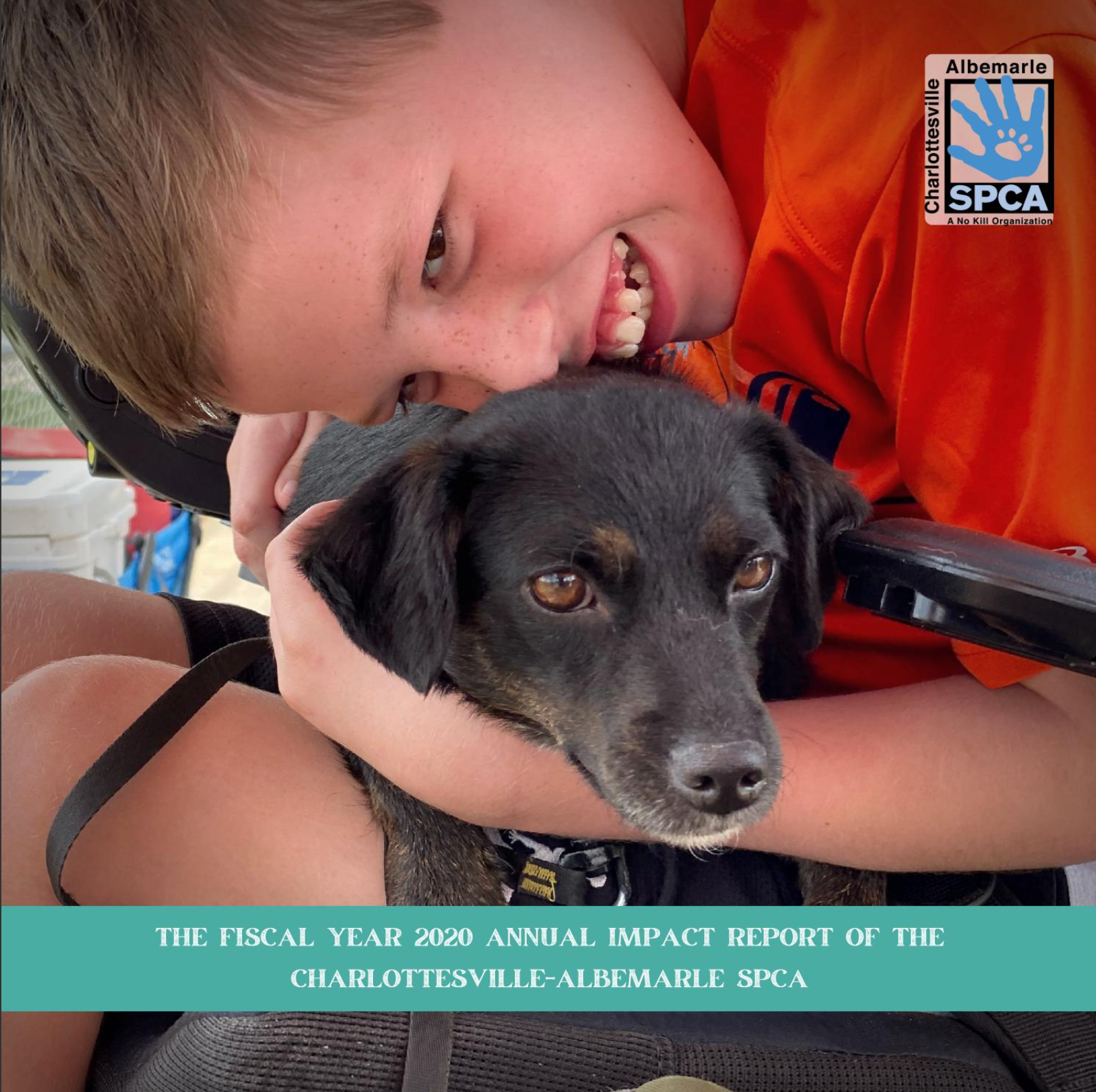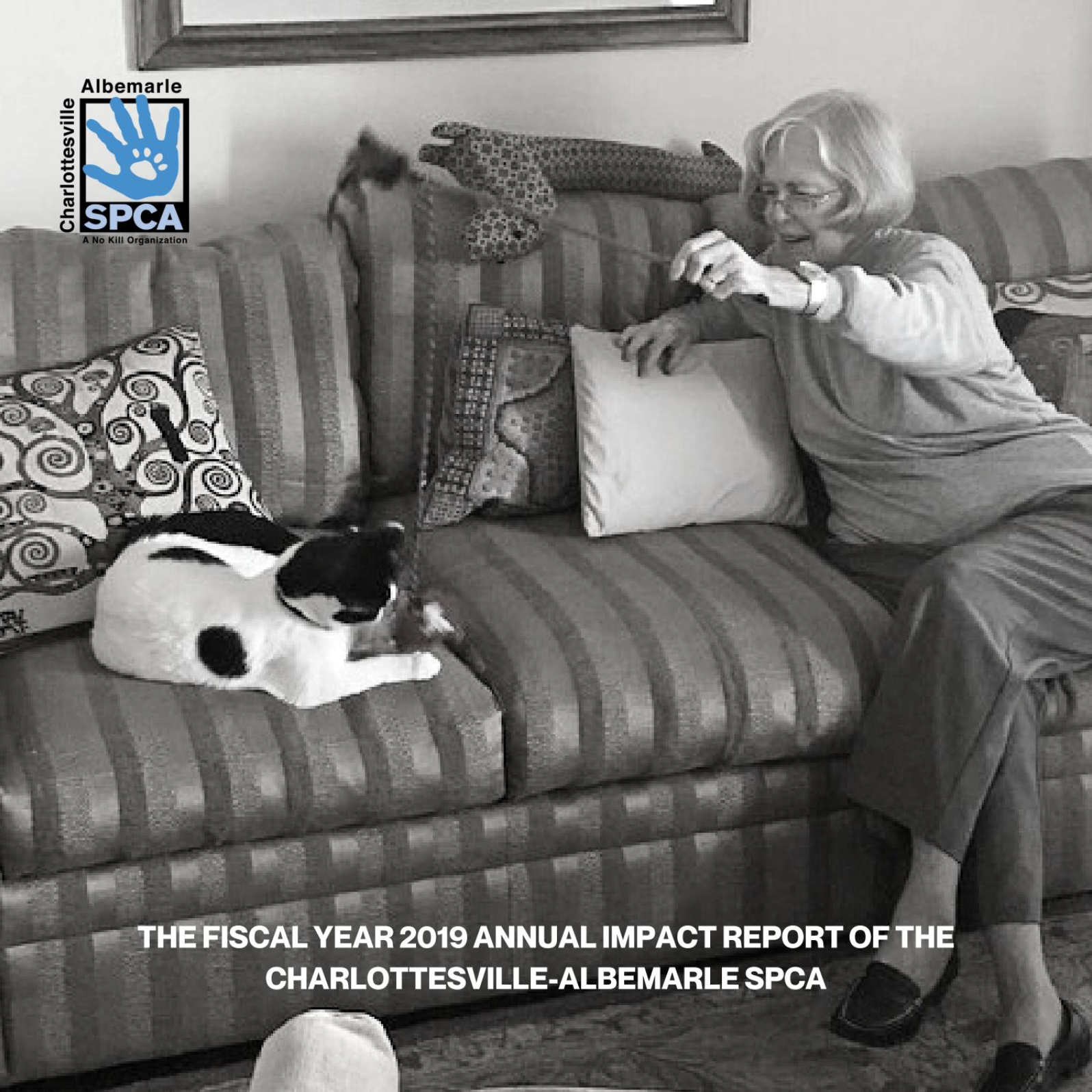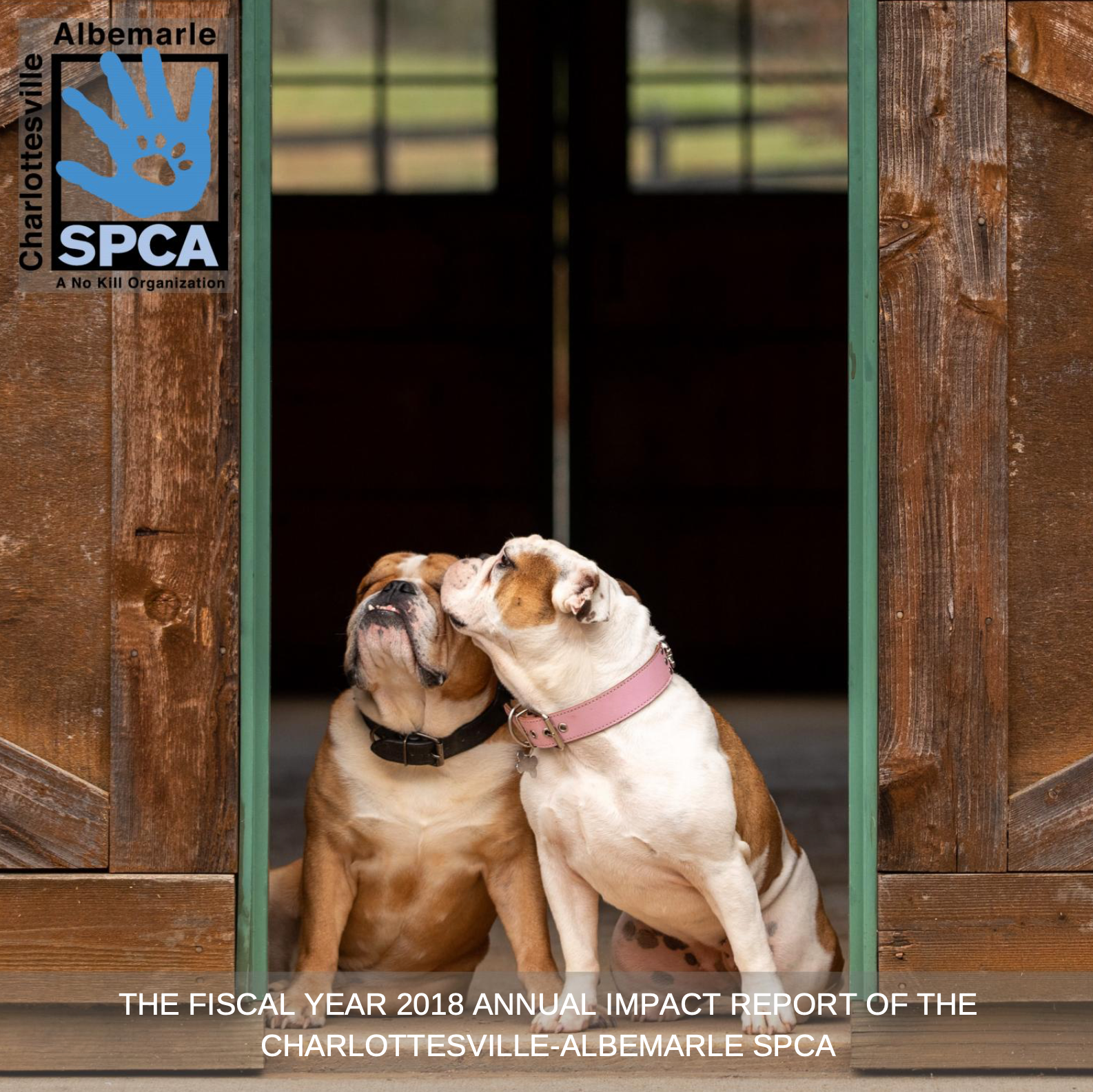About us
Who we are
Founded in 1914, the Charlottesville-Albemarle SPCA is a 501(c)(3) non-profit organization that has been a cornerstone of our community for over a century, dedicated to the compassionate care and protection of animals.
Our Mission
Our mission is to advance the humane treatment of dogs and cats by providing comprehensive sheltering, medical care, and behavioral support. We strive to ensure that every animal has the opportunity to find a permanent, loving home through community education and outreach.
Our Vision
Our vision is a future where every animal thrives within a compassionate community. As a designated no-kill shelter since 2006, maintaining a 90% live release rate, we have proudly helped thousands of animals to find their forever families each year. Our work is inspired by the resilience of the animals we serve and the powerful bond between pets and people. With the ongoing support of our community, we continue to make a meaningful impact on the lives of companion animals and the residents of Charlottesville and Albemarle County.
Our Core Philosophies
Refuge for Animals
CASPCA is dedicated to providing crucial animal welfare services to residents of Charlottesville, Albemarle County, and surrounding areas. Our commitment is rooted in safe, socially conscious principles to ensure public safety and health. We strive to place all healthy, behaviorally sound animals into homes and actively support partners in achieving their life-saving initiatives. We prioritize partnerships with our community, local shelters, and rescue organizations, aiming to maximize our impact not only locally but within the broader animal welfare community.
CASPCA serves as a refuge for animals in our community who are lost, sick, injured, and in danger as a result of abuse or neglect. It’s essential to recognize that animal shelters, CASPCA included, are designed as temporary refuges, and have physical and resource limitations in providing extended sanctuary to behaviorally compromised animals. We maintain a commitment to the safety of people and other animals by not reintroducing animals with aggressive behaviors into our community.
Core Services
CASPCA, contracted by the City and County, provides public animal sheltering services. Our goal is to reduce the time pets spend in shelters and minimize companion animal entries into Virginia shelters. Services include spay/neuter and wellness care, return-to-owner services, owner-to-owner rehoming, affordable veterinary care, TNR, lifesaving transportation, adoption, and mentorship. We trust pet guardians and shelter partners to make informed decisions for animals in their care and will continue to provide them with our support.
Sheltering Philosophy
CASPCA has adopted a judgment free approach to surrender, returns, and adoptions as outlined in HSUS’s Adopters Welcome Manual. It’s crucial to emphasize that we refrain from criticizing or shaming individuals for prioritizing the safety of their pets, themselves, and their loved ones over the life of a shelter pet. CASPCA wants what’s best for the animal and the people involved and recognizes the inherent difficulty in such decisions. We do this knowing full well there are some members of the community that do not extend us the same courtesy, and in fact condemns us when we prioritize the public, our staff, and our volunteers’ safety. Staff are entitled to a physically and psychologically safe workplace, and the management team will continue to work hard to minimize risk as much as possible.
Team Well-Being
CASPCA refrains from shaming owners, victims, or euthanasia decision-makers. Our staff is entitled to a physically and psychologically safe workplace. It’s important to recognize the emotional toll these decisions take on our team. They weigh heavily, and your understanding and compassion are crucial. The industry faces severe consequences when condemnation is visceral, affecting professionals’ mental health and, at times, leading to depression and suicide. Your understanding and support can contribute significantly to maintaining a positive work environment and encouraging the team to persevere in the face of challenging circumstances.
Please visit https://www.nomv.org/ for more information.
Community Access and Equity
CASPCA is dedicated to breaking down barriers and enhancing accessibility to services, resources, and information for pet owners. Our unwavering commitment extends to actively pursuing racial equity within the realm of animal welfare. Acknowledging historical and systemic disparities, we strive to rectify inequities that impact both animals and the communities we serve. Our pledge is to guarantee equal access to our services, resources, and educational opportunities for all community members, dismantling barriers to pet ownership and promoting access to pet care universally. Recognizing the ongoing nature of addressing racial inequities, we are committed to self-reflection and continuous improvement. Regular assessments of our practices, policies, and programs will identify and rectify any unintended biases or disparities. We express gratitude for your unwavering support and partnership in fostering a community where every individual, regardless of their background, is embraced, empowered, and uplifted
Please visit https://careawo.org/rd/ for more information.
Euthanasia Philosophy
CASPCA values animal life, and prioritizes ensuring an animal’s quality of life remains enriched and good while in our care. When an animal is actively in distress and no changes to environment, medical care, and behavioral care are successful, science shows that prolonged states of distress are more likely to result in permanent and lasting behavioral changes. We believe that if no remedy is available euthanasia, as a last resort, is the most humane outcome.
Our decision-making process involves thorough evaluation, considering the animal’s behavior, environment, opportunities for enrichment, and pathways to positive outcomes. We adhere to best practices outlined by our industry’s most reputable organizations. When gaps in our expertise are found, we contract out to certified experts, and reach out to other organizations and research institutions for counsel. This dedication of precious resources underscores our commitment to making informed, compassionate choices. When all else fails, a panel of staff and management reviews cases, ensuring the most compassionate and timely decisions.
We understand community members desire to provide sanctuary for animals displaying significant aggressive behaviors. Practical challenges, including years-long wait lists for placements, present hurdles. It’s essential to recognize that animal shelters, CASPCA included, are designed as temporary refuges, and have physical and resource limitations in providing extended sanctuary to behaviorally compromised animals.
It’s important to recognize the emotional toll these decisions take on our team. These decisions weigh heavily, and your understanding and compassion are crucial. Your understanding and support can contribute significantly to maintaining a positive work environment and encouraging the team to persevere in the face of challenging circumstances. Our team feels each and every one of our losses intimately and continue to show up for those they can save.
Humane Discourse and Disagreement
Respecting various viewpoints, CASPCA bases every decision on a commitment to animal welfare and industry best practices. We welcome discussions that foster understanding and seek common ground. Our unwavering commitment is to avoid placing dangerous animals back into the community. We acknowledge differing perspectives on sheltering and encourage those who disagree to support organizations aligning with their beliefs. While diverse views are valued for innovation, it is crucial to treat our staff and volunteers with respect. Any public rhetoric inciting threats, bullying, or harm to our team, clients, or volunteers is unacceptable and will not be tolerated.
The CASPCA team faces verbal, emotional, and physical challenges daily, and deserve acknowledgment, praise, kudos and every accolade for their unwavering dedication. As their leader, it’s crucial to emphasize that, while your support is vital, it cannot overshadow the well-being of our team.
CASPCA looks ahead as a united team, focusing on progress rather than demanding perfection. We encourage further discussion about our future plans and welcome clarifying questions on our decision- making processes. However, we won’t yield to demands for justification as our policies align with animal sheltering and behavior best practices, alongside compliance with legal and regulatory standards.
Please visit https://humanepro.org/page/humane-discourse-and-conduct-within-animal-welfare-pledge for more information.
No-Kill Philosophy
The term “no-kill” refers to an animal shelter or rescue organization that does not euthanize healthy or treatable animals. The definition can vary, and different organizations might have slightly different criteria for achieving and maintaining “no-kill” status. However, some common elements often associated with “no-kill” shelters include:
1. Save Rate: A key criterion for a “no-kill” shelter is often a high save rate. This rate is calculated by dividing the number of live animal outcomes (adoptions, returns to owners, and transfers to other organizations) by the total number of animals brought into the shelter.
2. Euthanasia Policies: “No-kill” shelters typically have strict policies against euthanizing animals for reasons such as lack of space or time. They only euthanize animals in cases of severe illness or untreatable aggression, focusing on providing medical care and behavior rehabilitation when possible.
3. Limited Euthanasia: Some “no-kill” shelters may still euthanize animals, but only in exceptional circumstances where an animal’s suffering is deemed untreatable, and quality of life is severely compromised.
4. Community Engagement: “No-kill” shelters often engage with the community to encourage adoption, responsible pet ownership, and spaying/neutering programs. This community involvement aims to reduce the number of animals entering the shelter system.
It’s important to note that achieving and maintaining “no-kill” status is a complex and ongoing process. Shelters may face challenges such as limited resources, overpopulation, and the presence of animals with medical or behavioral issues. The term itself doesn’t necessarily indicate that no euthanasia ever occurs but rather that it is limited to situations where an animal’s quality of life cannot be improved.
Different organizations and regions might have their own definitions and criteria for “no-kill” status, and the term is often used to convey a commitment to minimizing euthanasia and maximizing live outcomes for animals in their care.
Humane Advocacy
We understand that the well-being of animals is a shared passion among our community. Join us in being an advocate for animal welfare, by addressing issues such as housing/insurance discrimination, breed restrictions, the allocation of more resources to local shelters, and legislation to curb irresponsible breeding. Directing that passion towards these causes can lead to lasting positive change.
For more information, Please visit:
https://www.humanesociety.org/resources/humane-policy-volunteer-leader-program
https://www.humanesociety.org/resources/what-hsus-ally
https://www.aspca.org/get-involved/advocacy-center?province=VA
Join our compassionate team
Become part of a dedicated group of individuals working together to save lives and create a brighter future.
Our Leadership team
Libby Jones
Executive Director
With an impressive career spanning over a decade in animal welfare, veterinary medicine, and zoology, including pivotal leadership roles at influential organizations such as the Humane Society of Charlotte, Guilford County, and her most recent position as Chief Operations Officer at Seattle Humane, Libby brings a wealth of invaluable experience to her new role.
Taylor Reinson
Director of ANIMAL OPERATIONS
Taylor joined CASPCA in June 2023 as Director of Animal Operations, overseeing Adoptions, Transport, Foster, and Animal Care. A Lynchburg College Business Management graduate, Taylor has held key roles at Lynchburg Humane Society, Best Friends Animal Sanctuary, and Humane Society of Charlotte. She shares her life with her husband, three sons, and three dogs.
finance@caspca.org
Heather Sullivan
Director of Finance & Facility
With CASPCA since 2005, Heather began her career in animal care and has taken on multiple roles before becoming Director of Finance & Facility in 2018. She was key in achieving a live release rate of over 90% and developing the Community Cat program, which she still oversees, along with her main duties overseeing business affairs, facilities, and finance. Heather has 4 dogs, 2 cats, and a parakeet, all CASPCA alumni.
Deborah Whalen
Director of Human Resources & Retail Operations
With over 15 years of expertise in Human Resources, Deborah is a results-focused leader known for delivering talent acquisition, retention, and motivation solutions that enable organizations to harness the full potential of their most valuable asset – their people. A passionate animal advocate, Deborah is an avid dog lover with two CASPCA adoptees at home.
clinic@caspca.org
Dr. Emily Beichel
Director of Veterinary Services
Dr. Beichel leads our veterinary team with expertise and dedication. Having previously held the position of Director of Veterinary Services with CASPCA from 2008-2013, Dr. Beichel rejoined the organization in 2021 and accepted her second directorship tenure in 2023. She is inspired by animals’ capacity to heal and to trust, and by her own crew of elderly CASPCA alum at home.
Sara Stone
Director of Advancement
With a decade of experience in partnership management, Sara excels in building community connections as Director of Advancement. Her passion for animals and collaboration drives her to create meaningful relationships, ensuring every animal receives care and compassion. Sara is dedicated to impactful change through successful partnerships.
Board of Directors
Jenn Corbey, Chair
Mike Derdeyn, Vice Chair
Joel Reich
Ty Grisham
Faye Brown
Ed Wolanski, M.D., PC
Sandra Wang
Helen Dunn
Olga Weider
James Frye
Passionate about leadership and shaping the future of animal welfare? Submit your interest form to be considered for our Board of Directors
Financial Information
Quick Links:
ADOPTION HOURS:
Daily: 12:00pm - 6:00pm
Charlottesville-Albemarle SPCA. This institution is an equal opportunity provider. | Web Design by Thrive Marketing | Privacy Policy
